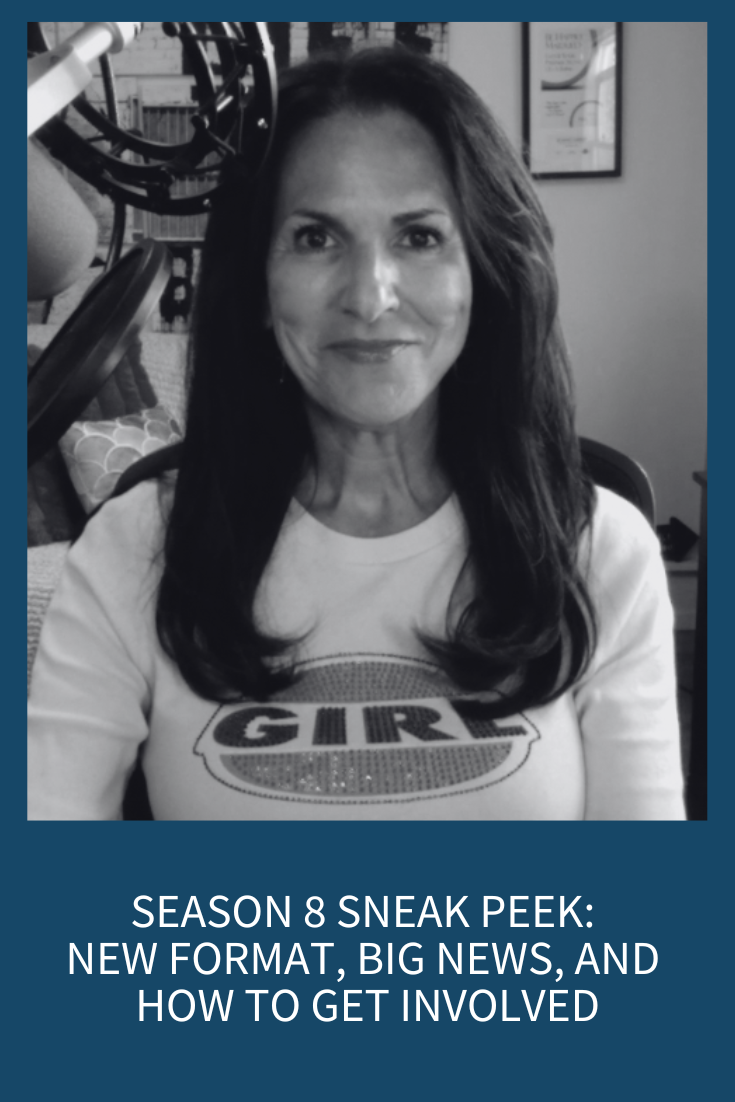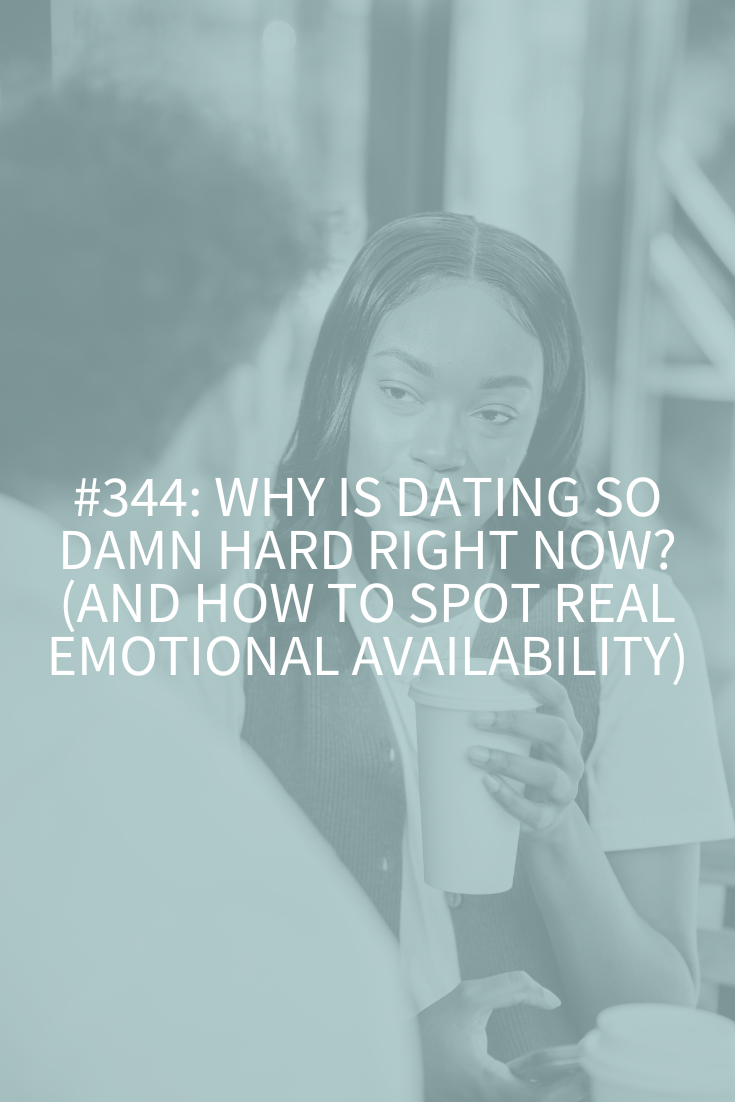
You messed up, or at least you think you did. Maybe it was a job you quit in the heat of the moment, not finishing your education ten years ago or cheating on your spouse. We can perceive big or little things as crimes that need to be punished in perpetuity. Many of us can easily forgive others, but when it comes to forgiving ourselves, we’re not so generous. But learning to forgive ourselves is crucial to creating balanced, healthy relationships with others as well as leading a life of serenity and satisfaction. Forgiving yourself won’t change your past, but it will absolutely make your future brighter. Today I’m covering my top five tips for forgiving yourself and letting go of guilt, shame and past regrets.
8-minute read
Introduction
The research shows there are huge benefits to your mental and physical health when you truly forgive yourself for the decisions your previous self made, so self-forgiveness is crucial to a life of connection and well-being. And it’s not just our own well-being that’s affected. Carrying around guilt, shame and regret is also a relationship killer. When we believe these negative things about ourselves, we go into relationships feeling less than, not worthy of love from a partner or that promotion at work. The energy we put out is one of being an imposter or less than. Others pick up on this, and we end up attracting predators and people who will try to take advantage of us.
When it comes to forgiving ourselves, there are two major categories.
- The first are things that are more tangible: cheating on your partner, stealing from work, yelling at your mom or maybe something huge like driving drunk and hurting someone. These are all things that seem, objectively, to be “wrong” or “bad,” although to what degree is up for interpretation.
- Second, there are events or issues we perceive as bad that are really regrets, such as dropping out of high school, staying in an unhealthy relationship too long, not freezing your eggs sooner or smoking while you were pregnant. The problem with these regrets is that you can’t forgive yourself for having ever made these decisions, so they play like a bad movie over and over in your head.
I’m going to address these two categories in one lump group with my five tips. This means you might think that your “thing” is much bigger than someone else’s “thing” (hence, you have more of a right or even obligation not to forgive yourself). But what I’m going to say today applies to ALL the things!
Tip #1: Compassion is the Only Place to Start
Being able to forgive yourself requires self-compassion, first and foremost. Everyone (and I mean everyone) makes mistakes. The key is to learn from these errors and move forward. When we hold onto past decisions that we don’t like, we’re holding on to the idea of staying stuck in the past instead of opening up our future.
You cannot, no matter how much you fret, kick yourself or worry, un-ring the bell. It’s done. The toothpaste is out of the tube, never to be put back. There is only coming to terms with what was, taking responsibility if needed, and figuring out how to not make the same mistake(s) again.
You did the best with the tools you had at that time. You have different tools now, so you can make different choices now. You have to forgive the person you were at that time. What were his/her circumstances when they made that choice? Who are you now? What are you doing now to be different?
In the 12-steps of Alcoholics Anonymous and Narcotics Anonymous, we have a serenity prayer that’s repeated at every meeting:
God grant me the serenity
To accept the things I cannot change;
Courage to change the things I can;
And the wisdom to know the difference.
As annoying as I’ve found that prayer at different times in my life, the words are so helpful if you focus on them. You’re asking God (the Universe or whatever else you might believe in) to give you some peace so you can accept what you can’t change while summoning the courage to make changes and take action now, where you can. And you’re asking for the wisdom to understand the difference with things you can change, and things you can’t. So, whether you’re in the 12-steps or not, this can be a great mantra to say to yourself when you’re feeling stuck in the past.
By being forgiving of yourself, you can then accept yourself and be more responsible for your life choices. When you don’t forgive yourself, you’re acting like a victim who can’t change anything, and you know acting like a victim in your life makes me crazy!
In the end, you’ve got to work on your self-compassion. I’ve done many episodes about self-love and self-compassion, or you can pick up any book by the queen of self-compassion, Kristin Neff. But you’ve got to make working on your self-compassion a priority.
Tip #2: Develop Realistic Expectations
If you’re having difficulty forgiving yourself for something (or just being who you are), it’s time to evaluate your expectations. What are the expectations you’ve set for yourself? Are you supposed to be perfect and only make correct choices every time? That’s an impossible goal and wholly unrealistic.
Or maybe you’re trying to live up to the unrealistic expectations others have set for you? Are you so busy comparing your life to your sister’s? Are you listening to your dad’s voice in your head telling you that you should be able to work full time and still only give your children homemade organic foods and not allow them any screen time?
If the voice in your head is that you’re never enough or can never measure up, that’s not a reasonable voice. The expectations here are too high. When you have healthy expectations, they’re not only achievable, but you feel fulfilled and satisfied when you reach them. If you’re always feeling drained, anxious and never enough, you’ve got yourself some unrealistic expectations that need to shift.
I would highly recommend listening to a loving kindness meditation at least once per week as you learn to lower expectations to something reasonable and be kind to yourself in the process.
Tip #3: Get Perspective
Getting perspective on your mistake is your next step. If this is something that happened ten years ago, you’re not upset about something now, but something old. The hurt is past, so if you’re treating it like it’s happening now, that’s a problem.
Ask yourself some constructive questions:
- Did you learn anything good about yourself from your perceived mistake?
- What else is true (in a positive frame) about your perceived mistake from the past?
- Moving forward, what safeguards can you put in place, so you don’t make this same kind of mistake/decision?
Cognitive reframing is the best and easiest way to get perspective. I cover my five-step process for this in my episode: How to Stop Overthinking and Let Things Go that Bother You.
Tip #4: Stop the Replay
Now it’s time to stop replaying (and re-stimulating) the event! If you find yourself during your day remembering anything about your mistake or whatever you can’t forgive yourself for, I want you to practice breathing or meditation when the thoughts come up, so you can calm your nervous system and disengage your “fight or flight” reactions.
The more you replay a negative event or conversation in your head, the more negative you’re going to feel. That feeling gets entrenched in your neuro-circuitry. Also, you start to twist what happened or what was said to make it closer to how you’re feeling and you lose perspective.
You need to ask yourself one question when you’re tripping on something: Is this helpful? Is thinking about this over and over and replaying it like a movie in your head helping you? Are you feeling happier and lighter? I seriously doubt it.
It doesn’t help to do the replay – you’re just focusing on being right, not happy. It’s time to focus on being effective, not correct.
Tip #5: Build Yourself Up to Make the Past Smaller
You can’t just forget, but you can build yourself up to a place where this is only a small part of you and your experience, then it won’t carry as much weight. It’s like a drop of food coloring in a mug of water will color all the water. But a drop of food coloring in a swimming pool will barely be seen or noticed.
What can you focus on each day to expand your life and become the person you want to be? Some ideas:
- Travel somewhere new
- Take a class in something fun (cooking, basket weaving or whatever floats your boat)
- Schedule to meet with a friend once a week to take a walk
- Start walking your dog without bringing your cell phone and be in your moments
- Start attending some kind of spiritual group. This could be a temple, mosque or church or your local Buddhist Zen center
- Start a morning practice where you begin each day on a healthy note so you can better build positive momentum all day long. Check out my episode with my step-by step guide to starting your day right.
- Practice mindfulness throughout your day. If you don’t have my free Mindfulness Starter Kit yet, it’s time!
- Schedule a once a week lunch date with a good friend
- Start a meditation practice. Once again (because I love you so much), I have a free Meditation Starter Kit you can download.
- Read a great forgiveness book each day. I did an interview with Dr. Robert Enright who spearheaded the field of forgiveness research. Have a listen there and maybe buy his book.
“To forgive is to set a prisoner free and discover that the prisoner was you.” – Lewis B. Smedes
Resources for How to Forgive Yourself: Five Tips to Let Go of Guilt, Shame and Past Regrets
Regret Sucks: The 3-Step Process to Make It Stop
Is Self-Compassion the Secret to a Happy Relationship
Five Ways to Cultivate Self-Love
Get Abby’s Rational Emotive Therapy Tool
How to Stop Overthinking and Let Things Go That Bother You
Abby’s Step-by-Step Guide to Starting Your Day Right






